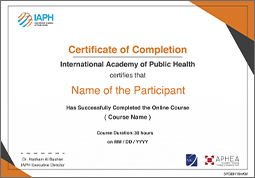Advanced Statistical Methods
Description
This course provides students with the necessary skills they need to perform statistical analysis of data from biomedical research, healthcare administration, electronic medical records, vital statistics, disease registries, and research databases. Students will learn the appropriate statistical techniques used for estimation and inference.
The course enhances participants understanding of statistical modelling for continuous and binary data and their assumptions, correlated data analysis, and longitudinal data analysis. The use of a statistics package, such as SPSS, to analyze case studies will be important throughout.
Learning Outcomes
- Understand the strengths, limitations, and principles of different modern study designs
- Identify and interpret effect modification
- Identify potential sources of selection and information bias and understand how to control bias by appropriate study design
- Identify potential sources of confounding and understand how to address confounding in the design and analysis of epidemiological studies
- Explain commonly used considerations for causal inference and models of causality
- Understand the concepts ‘validity’ and ‘precision,’ ‘random’ and ‘systematic measurement error,’ ‘differential’ and ‘non-differential misclassification,’ and the use of validation and reproducibility studies for epidemiological research
- Review of Descriptive Statistics
- Interval Estimation and Hypothesis Testing
- Independent t Test
- The Chi-Square Test
- ANOVA Test
- Repeated Measures Analysis
- Simple Linear Regression
- Multiple Linear Regression
- Binary Logistic Regression

Duration:
30 Learning Hours
Accredited By:


Certificate

Are you interested in the course?
Get notified once the course is open by clicking on
Advanced Statistical Methods
Thank you for registering your interest! We appreciate your enthusiasm for this course. As soon as it becomes available, we will reach out to you with all the details. Stay tuned!